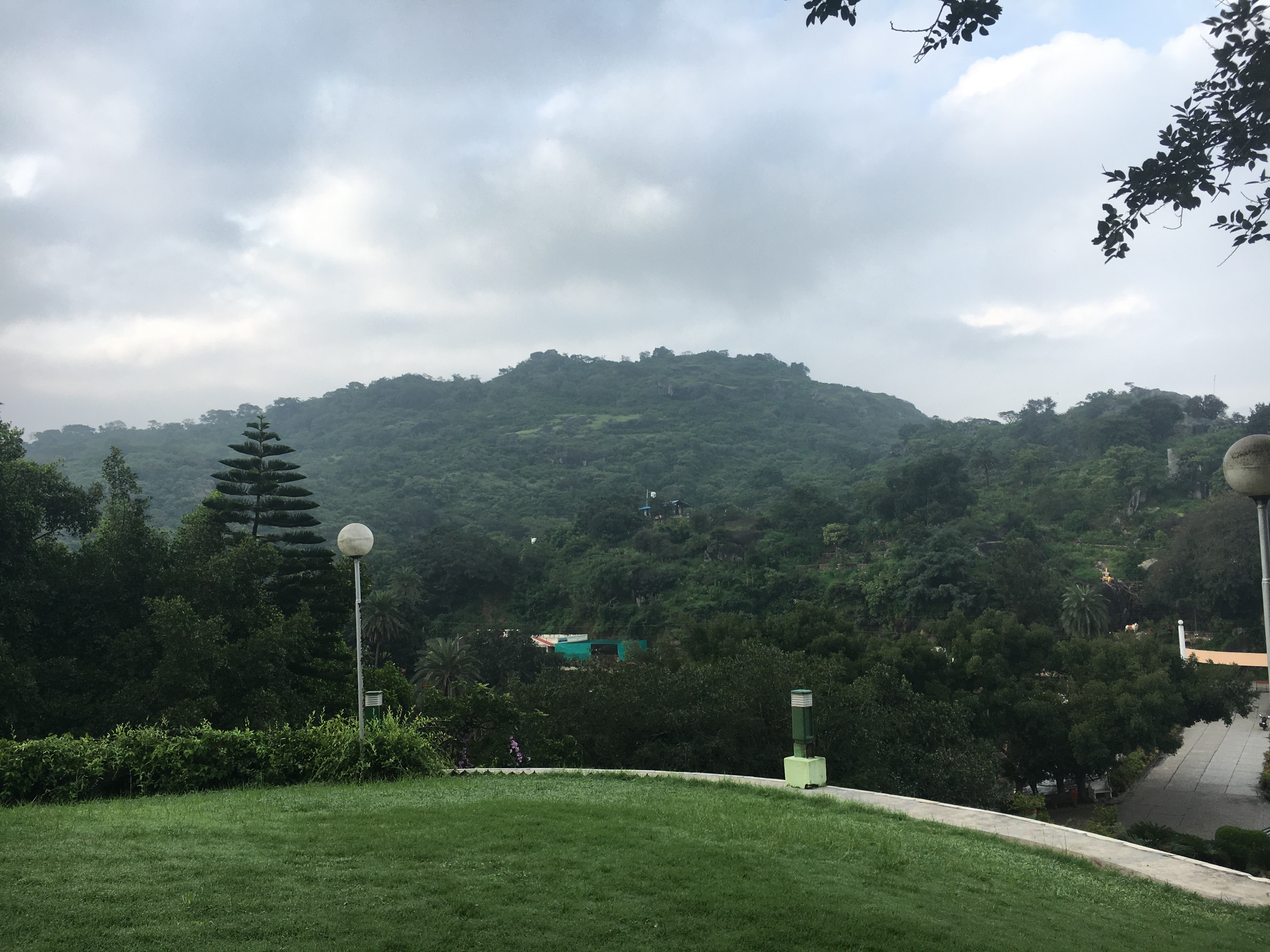Gyan Sarovar
Brahma Kumaris
Opened in 1991 as a campus suitable to host non-Indian Brahma Kumaris, Gyan Sarovar – loosely translated as “think tank” – is a forested thirteen-hectare campus tucked away among the winding hills of Mount Abu, Rajasthan. When approaching the hilltop campus, several scenes signal one’s proximity: concrete planters engraved with “BK” begin to line a forested road, the dark boulders of a shallow valley are blanched by white garments lain upon them to dry, and wrought-iron residential gates come into view, their spokes arranged into the familiar radial egg that serves as the Brahma Kumaris logo.
Gyan Sarovar has a residential capacity of approximately 750 people, and the grounds include several ponds,1 a park, an auditorium, an art gallery, several shops selling Brahma Kumaris goods, a multistory dining complex, a dispensary, offices for the various wings of the organization, classrooms for various courses offered through those wings, and residential facilities of various grades. Harmony House, where I stayed, is an “upscale” accommodation, featuring in-line hot water, western-style showerheads, well-padded mattresses, and only two beds per room. Unlike the other residential buildings of Gyan Sarovar, which populate the eastern half of the campus, Harmony House stands atop a small hill adjacent to Harmony Hall – the auditorium that serves as the primary conference venue on campus. Because of this proximity, prominent BKs often retire to a meeting room on the ground floor of Harmony House after their lectures, where they sometimes entertain small groups of visitors. For example, although we never had a chance to speak, I bumped into Sister Shivani, a prominent TV personality and BK figurehead, on multiple occasions during a weekend stay there.
- Contrary to the perceptions of many first-time visitors, neither of these tanks is “Gyan Sarovar.” The whole campus is named, not after a water body, but because the frequent conferences held on campus are understood to be so many “think tanks.” ↩
